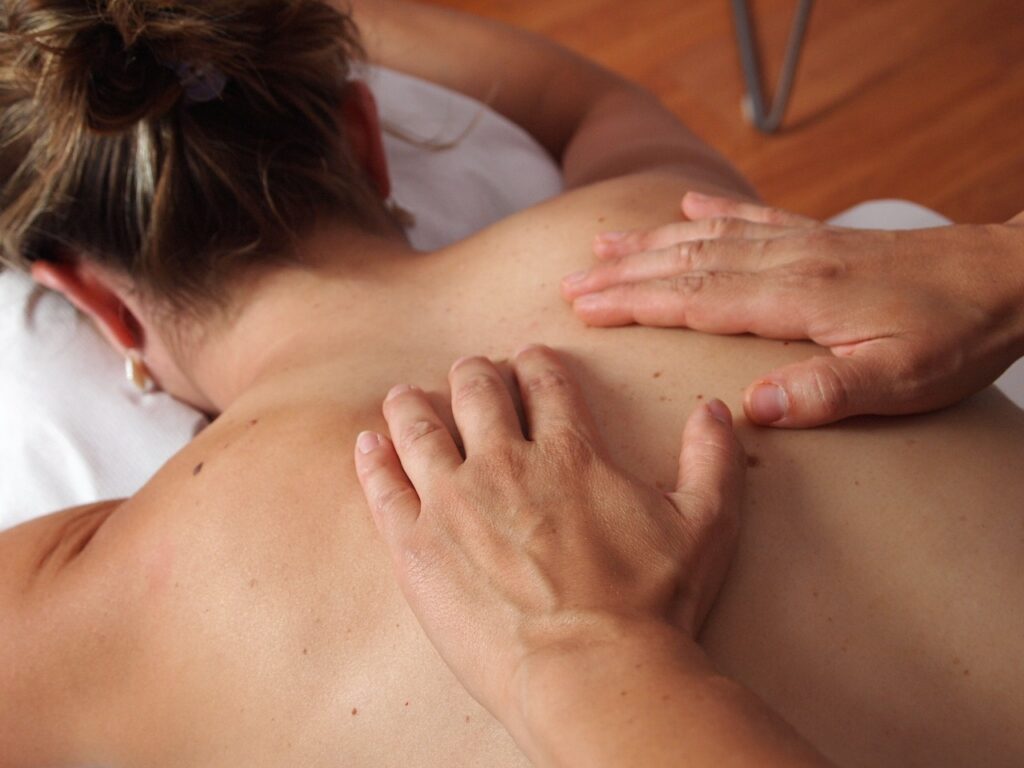Undergoing any major life change is quite stressful, and this is especially true for menopause, which signals major physical and psychological changes for women. Going through menopause can also make other life events, such as caring for aging parents, even more stressful. If you’re trying to manage your menopause symptoms and your stress at the same time, you probably feel overwhelmed — but there are things you can do for both stress and menopause relief. Here are eight strategies to help manage your menopause and your stress at the same time.
1. Exercise regularly.
Exercise is one of the best ways to manage stress at any stage of your life, including menopause. In fact, certain kinds of regular exercise can help you prevent or minimize certain menopause symptoms, such as bone loss. Talk to your doctor about the best exercises to manage your symptoms. Not only does exercise help you burn off nervous energy, but it also makes your body release feel-good endorphins such as dopamine. And if you find that some of your muscles down, there are weakening with age, doing pelvic floor exercises can help you build your strength and control back up. When performing these exercises, try using Kegel balls to work a variety of pelvic floor muscles.

2. Practice deep breathing exercises.
Sometimes, you can’t get away for a walk around the neighborhood or a quick session at the gym. If that’s the case, don’t fret. You can still calm yourself by practicing deep breathing exercises. Sit or lie down in a comfortable position and close your eyes. Place one hand on your stomach and the other on your chest. Breathe in through your nose for the count of five and then out through your mouth for the count of five. If you’re breathing deeply enough, the hand on your stomach should go up and down with each breath. Repeat this exercise three to 10 times until you’re feeling a bit calmer.
3. Try out meditation.
If you like deep breathing and want to take it a step further, you might want to try meditation. Some people find meditation helpful for managing stress and improving mental clarity. If you’re new to meditation, start with a reasonable goal (such as five to 15 minutes a day) and build up from there. You might also want to consider a guided meditation app if you have trouble meditating on your own. The app will walk you through an entire routine and can make it easier to focus during the allotted time.
4. Sleep enough.
Like it or not, sleeping enough is one of the best things that you can do for your physical and mental health. Sleeping gives your body time to repair itself and your mind time to calm down. Sleeping also regulates your mood, sharpens your concentration, and improves your decision making, all of which can help you destress. Don’t see sleep as something annoying you have to do — consider all the good things it does for your body, and make time in the same way you do, eating and showering. (Do be mindful of sleeping too much, though, which can be a symptom of depression.)

5. Pay attention to your beverages.
Caffeine may help you feel more awake, but it also increases the production of the stress hormone cortisol, which will make you feel even more stressed. Try to minimize your caffeine intake, and don’t drink it too late in the day, which can interfere with your sleep patterns. You should watch your alcohol intake as well. While alcohol might make you feel sleepy, it can disrupt your sleep and make it harder to stay asleep. Both alcohol and caffeine are also diuretics, meaning that they make you pee more. If you’re already struggling with bladder issues, these beverages might worsen your issues.
6. Understand the signs of depression and anxiety.
The hormonal changes during menopause can make you more susceptible to anxiety and depression, especially if you already had either of these conditions when you were younger. Be mindful of symptoms for both of these conditions, including fatigue, irritability, trouble concentrating or making decisions, sleeping too much or too little, changes in eating habits, gastrointestinal problems, and lack of energy. There are many different ways to treat depression and anxiety, including talk therapy and medication.

7. Treat yourself to some self-care.
Pampering yourself a little bit can help you relax and boost your mood. For instance, if your muscles are all tense, you can book yourself a massage appointment to help get the kinks worked out. If your skin is feeling dry — a common side effect of aging — a moisturizing facial at a spa might be just the ticket. Even doing simple things at home, such as painting your nails, can help you relax and feel less stressed. Self-care doesn’t have to be a hassle or expensive. It just needs to help you chill.
8. Seek out support.
You don’t have to go through menopause alone. Your doctor will (hopefully) be a great partner during this new life stage, and you might also want to consider finding a therapist to help you talk through your feelings around aging and losing your fertility. Many of your female friends in your same age bracket are probably going through the same transition as you, so you should also reach out to them for support and commiseration. Talking more about menopause and what older women go through starts with you and your friends and family.
Menopause is stressful enough on its own, no matter what life throws at you. Your fluctuating hormones may also impact your resilience to stressors, so be mindful of that and cut yourself some slack. If you’re looking for other ways to manage your stress during menopause, follow these eight tips to help keep your stress in check during this new phase of your life.
Featured Photo by Edward Cisneros on Unsplash
